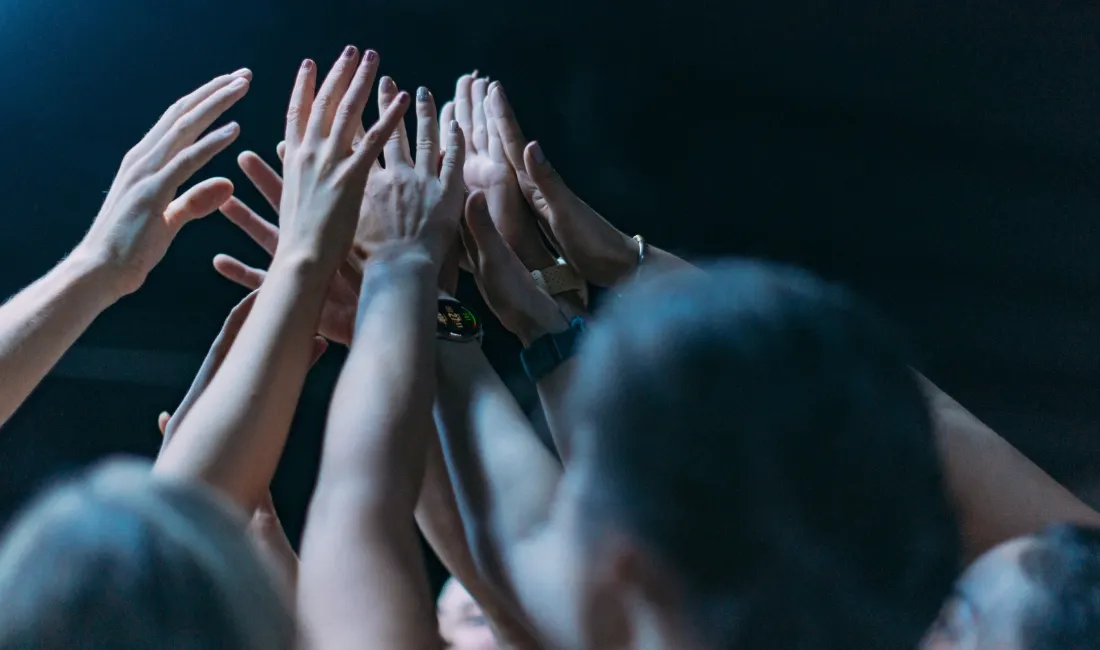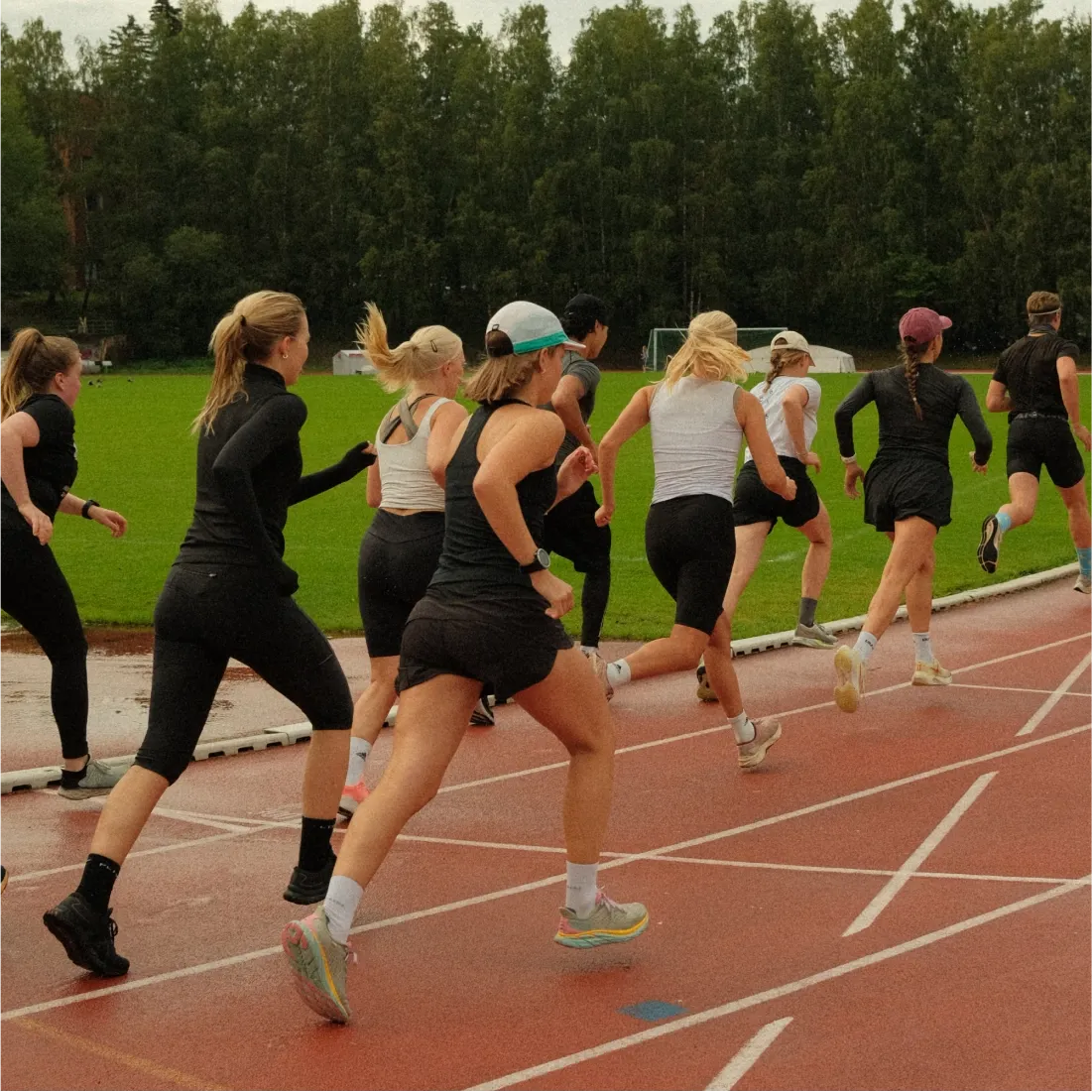As far back as I can remember, I always wanted to play in a team. It wasn't about the glory of scoring the winning goal or making the perfect shot. No, for me, the magic lay in something else, in something far more fundamental - the simple act of being part of a team.
I can still recall the mix of excitement and nervousness when starting the new season when I was a kid. Slipping on that jersey for the first time, with my chosen number on the back —always number 14—, felt like a rite of passage. It didn't matter if it was basketball, soccer, or volleyball - each sport offered its own flavor of teamwork, but the core appeal remained the same.
There was something comforting about being one of many, all working towards a common goal. The after-school training sessions, filled with sweat and determination, became a cherished routine. Locker room banter echoed with laughter and nervous energy, forging bonds beyond the field. And even the disappointment after a loss — which, let's be honest, was more common than the wins - had its own unifying effect. Every weekend we knew we would most likely face a sore defeat, but it didn't matter, we showed up, nevertheless.
It was fun, a lot of fun, but looking back, I realize these teams provided far more than just physical activity. They were my introduction to being part of a community. Learning to coordinate with others, to rely on teammates and have them rely on me in turn —these were valuable life lessons disguised as play. In essence, being part of a team was a crash course in human relationships and cooperation.

Reality check
Naturally, my limited athletic abilities only carried me so far, and it didn’t take long for me to realize that a professional sports career wasn’t in the cards. That also meant letting go of the sense of belonging that comes with being part of a team.
As I grew up, I shifted my focus toward new horizons—pursuing a degree, building a career, and shaping a fulfilling life. Without the routine that comes with being in a team, sports, once central to my identity, naturally took a backseat. The jerseys that once symbolized my youthful ambitions found their place in a box in the closet.
Running as a team
Eventually, I found my way back to sports through running. It started with the occasional 10k race, just for fun, but over time, my passion for running deepened. What began as a casual pursuit soon became a disciplined commitment, and I dedicated myself to the training and perseverance required to become a marathoner. Each step not only reconnected me with my love for competition but also reminded me of the strength that comes from pushing beyond my limits.
Of course, running is mostly a solo sport, and for a while, I embraced the solitary nature of it. But after countless solo training sessions, pushing myself day in and day out, I began to miss the camaraderie that comes with being part of a team. That’s when I decided to join a running group. It wasn’t just about the sense of belonging I had been craving—it also had a profound impact on my performance. Suddenly, speed sessions at the track felt more manageable with the support and energy of others around me, along with the occasional pacing. Even the long, steady runs became more enjoyable when filled with conversations. Training alongside teammates reignited my motivation, reminding me that while running may be an individual pursuit, the journey is so much richer when shared. Plus, it gave me the chance to wear a team shirt once again, reigniting that familiar pride of representing something bigger than myself.
Enjoying this article? Subscribe to Polar Journal and get notified when a new Polar Journal issue is out.
Subscribe
Today, I can't imagine continuing my modest running journey without being part of a running club. After years of being in a team, it's easy to see why I’m so drawn to it—the sense of community that naturally forms within a group. There’s something powerful about the shared experience of running together. When we train and race as a team, we see each other at our highest highs and lowest lows. It’s a full spectrum of emotions: exhaustion after a tough workout, the fatigue that comes from pushing our limits, the rush of energy during a good run, the excitement before a race, and the nervousness that creeps in before the starting gun. Through all of it, there’s a bond that only deepens with time. Running may be an individual sport, but the collective support and camaraderie make every step more meaningful.

Ditch Solo Runs. Find your Crew
Solo runs can be isolating. But running clubs offer a potent remedy! From shared struggles to post-race cheers, discover how running clubs can elevate your running journey. Read more to find your perfect crew and ditch the solo shuffle!
Read more
 Polar Vantage M3
Polar Vantage M3
 Polar Grit X2 Pro Titan
Polar Grit X2 Pro Titan
 Polar Grit X2 Pro
Polar Grit X2 Pro
 Polar Grit X2
New
Polar Grit X2
New
 Polar Vantage V3
Polar Vantage V3
 Polar Ignite 3
Polar Ignite 3
 Polar Pacer Pro
Polar Pacer Pro
 Polar Pacer
Polar Pacer
 Polar Unite
Grit X Series
Vantage Series
Pacer Series
Ignite Series
Polar Unite
Grit X Series
Vantage Series
Pacer Series
Ignite Series



































